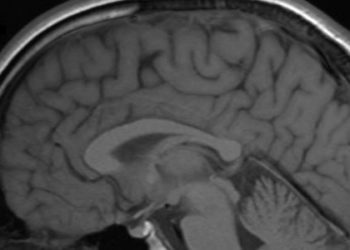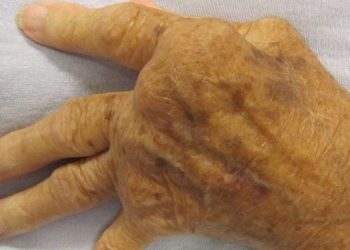Macrophage-specific TNF inhibitors show efficacy in mice [PreClinical]
1. Dual-function antibodies were designed such that each one bound to the macrophage-specific cell surface receptor F4/80, as well as tumor necrosis factor (TNF).
2. In a mouse model of deleterious TNF, the macrophage-specific TNF inhibitors were more effective at ameliorating disease and increasing survival than systemic TNF inhibition.
Evidence Rating Level: 3 (Average)
Study Rundown: TNF inhibitors are currently used to treat autoimmune diseases such as rheumatoid arthritis and Crohn’s disease. However, TNF secreted by different cell types can have conflicting roles. While TNF from T cells is necessary for infection resistance, macrophages secrete TNF that is involved in autoimmunity. Because of this, two antibodies were designed with a high affinity to F4/80, a cell surface molecule highly expressed on murine macrophages, as well as TNF.
These Myeloid-Specific TNF Inhibitors (MYSTIs) were compared with control antibodies against all TNF (Systemic TNF inhibitors, or STIs). Both types bound to TNF, but only the MYSTIs interacted with peritoneal cavity and bone-marrow-derived macrophages. MYSTIs were specific and did not bind to macrophages without F4/80. In addition, they were able to bind both TNF and F4/80 simultaneously. In an in vitro test of efficacy, only the MYSTIs decreased TNF release from macrophages. The researchers then tested MYSTIs in a mouse model of LPS/D-galactosamine induced hepatotoxicity. This condition is currently being treated with general TNF inhibitors, but is characterized by the production deleterious TNF from macrophages. All mice treated with MYSTIs survived, whereas the same dose of STIs did not prevent lethality.
This study provides the first evidence showing the benefits of a cell-specific anti-TNF therapy. However, much work still needs to be done to develop this technology for clinical use. Most notably, the F4/80 receptor is specific to mice. Additionally, MYSTIs should be tested in other autoimmune conditions and evaluated for toxicity.
Click to read the study in PNAS
Relevant Reading: Risk of tuberculosis infection in anti-TNF-α biological therapy: from bench to bedside
In-Depth [animal study]: Two antibodies, MYSTI-1 and MYSTI-2, were engineered against F4/80 and TNF. Corresponding control antibodies, STI-1 and STI-2, targeted TNF produced by all cells. Surface plasmon resonance was used to determine how well the antibodies interacted with TNF. MYSTIs had a low dissociation rate. A cytotoxicity assay in a mouse fibrosarcoma cell line showed that MYSTIs and STIs equally inhibited TNF activity.
Using flow cytometry, the specific interaction of MYSTI-1 with F4/80 was confirmed. In comparison, STI-1 did not interact with F4/80 cells. After MYSTIs were incubated with stimulated macrophages from TNF humanized mice, an ELISA was performed to analyze the presence of released TNF. A significant decrease in TNF release with MYSTI compared to STI was noted (p<0.05).
Finally, MYSTIs were tested in a mouse model of LPS/D-Galactosamine-induced hepatotoxicity. Mice were injected with either 750 U/g MYSTI-1 or STI-1, or 130U/g MYST1-2 or STI-2. A lethal dose of LPS/D-Gal was then administered. Mice given MYSTI-1 or MYSTI-2 had a 100% survival rate over 13 hours, whereas mice given the STI antibodies had a 0% survival rate (p<0.01).
Image: PD
©2016 2 Minute Medicine, Inc. All rights reserved. No works may be reproduced without expressed written consent from 2 Minute Medicine, Inc. Inquire about licensing here. No article should be construed as medical advice and is not intended as such by the authors or by 2 Minute Medicine, Inc.







